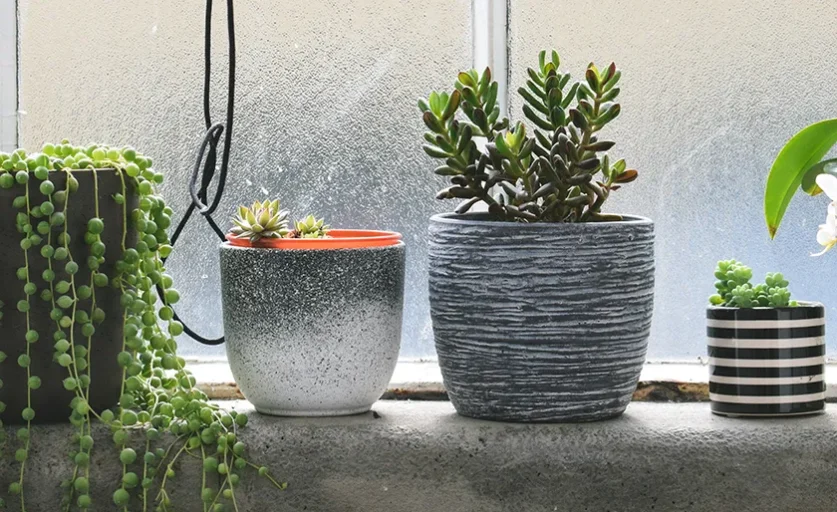Is Peat Free Compost Good for Houseplants
Is Peat free Compost good for growing indoor houseplants?
The Coconut Compost Company range of high-quality compost has been developed to meet a wide range of growing and gardening needs, from multipurpose, to potting, seeding and hanging baskets. Our coir-based house plant composts have been developed to support the unique needs of house plants while being a better choice for the environment. In fact, growing house plants is one of the best uses for our unique coir-based alternatives to peat products.
If you’re wondering can I use peat free compost for indoor plants, read on to find out more!
How to grow and improve your houseplants by using peat free compost
If you’re keen to grow outstanding house plants, then peat free compost is a great choice. It’s a viable alternative to peat based compost that not only supports your house plants but also reduces the environmental impact of commercial peat extraction. Start by choosing quality peat-free compost to provide your indoor plants with essential nutrients and moisture retention. The latter is particularly important when it comes to avoiding compost drying out.
Make sure you choose the right size container and follow the recommended watering guide for each plant. It’s easy to both under and overwater house plants so care is needed. Ensure your houseplants receive proper care by using peat-free compost that offers excellent aeration and drainage. These qualities help prevent overwatering and root rot, ensuring your indoor plants thrive.
By choosing peat-free options, you not only nurture your houseplants but also engage in planet friendly gardening practices, reducing the demand for peat and creating an abundantly sustainable indoor garden.


Why is peat free compost good for indoor plants?
With the increased popularity of houseplants going hand in hand with growing concern for the planet, many indoor garden growers ask is peat free compost good for houseplants and why choose peat free?
Our coir-based peat free compost is designed to provide indoor plants with a nutrient-retentive growing medium. Its ability to retain moisture effectively ensures consistent hydration while promoting good aeration and drainage. All of this can reduce the risk of overwatering and root-related issues. It’s also easy to use as there’s no particular difference in how to use peat free compost compared to peat based houseplant mixes.
If you’re looking for vibrant and thriving houseplants, choosing peat-free is not just a responsible choice but also a practical one.
FAQs
-
Which compost is best for indoor plants?
The best compost for indoor plants is one that provides essential moisture retention, good aeration, and proper nutrient holding properties. While there are various compost options available, it's essential to consider your specific indoor plant's requirements. High-quality peat free compost or potting mix, like The Coconut Compost Company's house plant compost, is an excellent choice for healthy indoor plants.
-
What are the disadvantages of peat free compost?
Peat free compost has improved significantly over the years with modern compost mixes matching and in some cases exceeding the quality of traditional peat mixes. However, the composition of peat free compost can vary, leading to differences in nutrient content and performance. You may need to make adjustments to the pH level of your compost to meet specific plant needs.
-
Which plants prefer peat free compost?
Many houseplants can thrive in peat-free compost, and some may even prefer it due to its moisture retention, aeration, and sustainability. These include ferns, peace lilies, spider plants, African violets and ficus.
-
What is the best peat free soil for indoor plants?
The best peat-free soil for indoor plants often depends on the specific needs of your plants. Look out for high-quality peat-free compost or potting mix designed for indoor plants. The Coconut Compost Company's house plant compost is tailored to the needs of house plants and provides ideal moisture retention and aeration to support healthy growth.
-
What is the best soil for indoor plants without bugs?
The best soil for indoor plants without bugs is a well-drained and sterilised house plant mix. The Coconut Compost Company’s house plant compost is designed to be bug-free, reducing the risk of pest infestations. It's also essential to practice good plant hygiene, such as inspecting new plants, isolating them if necessary, and maintaining a clean indoor gardening environment.
-
Is peat free good for plants?
Peat free compost can be beneficial for many plants, offering a sustainable and environmentally friendly alternative to traditional peat-based options. Its effectiveness largely depends on the specific plant's requirements for moisture retention and aeration. Farmers and professional growers across the UK and the globe now use peat free composts like coir to grow fruit and vegetables so it is a well-established medium. While peat free compost is suitable for numerous plants, it's crucial to choose the right blend and monitor your plants to ensure their health and growth.